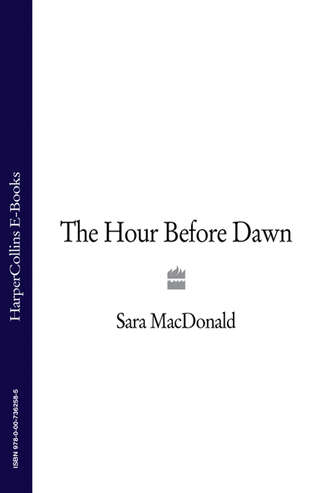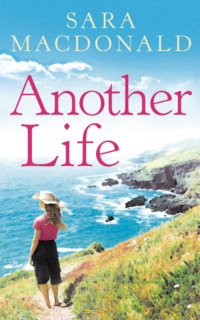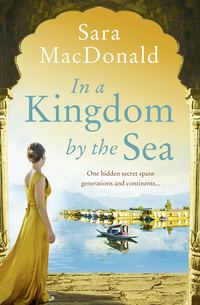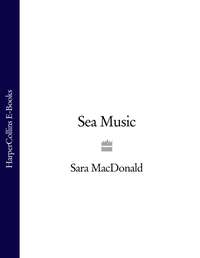
Полная версия
The Hour Before Dawn

The Hour Before Dawn
Sara MacDonald

For my beloved twin Nicky, with love.
Between midnight and dawn, when the past is all deception, The future futureless, before the morning watch. TS Eliot
Table of Contents
Cover Page
Title Page
Dedication
Prologue
One
Two
Three
Four
Five
Six
Seven
Eight
Nine
Ten
Eleven
Twelve
Thirteen
Fourteen
Fifteen
Sixteen
Seventeen
Eighteen
Nineteen
Twenty
Twenty-One
Twenty-Two
Twenty-Three
Twenty-Four
Twenty-Five
Twenty-Six
Twenty-Seven
Twenty-Eight
Twenty-Nine
Thirty
Thirty-One
Thirty-Two
Thirty-Three
Thirty-Four
Thirty-Five
Thirty-Six
Thirty-Seven
Thirty-Eight
Thirty-Nine
Forty
Forty-One
Forty-Two
Forty-Three
Forty-Four
Epilogue
Acknowledgements
About the Author
Other Books By
Copyright
About the Publisher
PROLOGUE
Fleur treads water in the deep end as the twins slowly climb to the diving board. An older girl goes up behind them to make sure they don’t fall.
Fleur is laughing at their excitement. Nikki jumps first, plummets downwards, hits the water and keeps going down. Fleur hauls her up to the surface and she opens her mouth and screams with joy.
Fleur sits her on the edge of the pool and swims back to the middle for Saffie. Saffie leaps and lands almost into Fleur’s arms and Fleur scoops her up before she sinks. The onlookers round the pool clap their hands; it is an amazing sight to see toddlers jumping from the diving board.
‘We did it! We did it!’ they both cry.
Fleur swims to the edge and pulls herself out and sits next to them. ‘You’re so brave! I’m so proud of you!’
‘Now you! Now you, Mummy!’
Fleur looks at them, small brown bodies, wrists and ankles round and babyish still, their fair hair plastered to their heads. They could both swim before they could walk. They have no fear of the water, no fear of anything. She is suffused with love, overtaken; wants to pull them to her and bite into those plump legs and arms, bury her head in their wet little stomachs.
‘OK. But go back to the rug and get your armbands first.’
She watches them run noisily away over the grass; watches heads turn as they always do at the two identical little figures. When they return she blows up their bands, then blows a raspberry on each brown stomach making them shriek.
‘Go and sit on the edge of the shallow end, you noisy little girls, and don’t jump in until I’ve dived and I’m in the water. You know the rules. I mean it. If you jump in before I’m in the water, no more diving board.’
The twins nod solemnly and Fleur walks away and climbs the ladder to the top board. Over to her right the sea glitters over the Straits of Malacca and sounds from the naval base below reach her. It is late in the afternoon and a cooling wind is coming from the sea, ruffling the palm trees, touching her wet skin like a whisper. Colours are softening over the grass and families, some with amahs, sit scattered on towels and rugs around the pool, reading, talking quietly, and waiting for the men to finish work and join them.
Fleur stands poised, eyes almost shut, dark hair, dark skin, in a white bikini. She raises her arms, thinking about her movements and the alignment of her body as only a dancer does. She pauses, the diving board rocks, and then in perfect slow motion her body bends, jumps and turns in a perfect arc as she dives, breaking the water with hardly a splash.
She isn’t aware of the watchers, of the men turning from the bar, of the women stopping for a moment, of the children, their mouths open in admiration. She is only aware of this small act of precision reminding her of what her body can do.
When she surfaces, the twins are swimming like small, fat beetles towards her, racing to see who can get to her first. She laughs and propels herself towards them and when her feet touch the bottom she holds her arms wide, turning her face upwards away from their splashes. They grab her arms.
‘I won!’
‘No, I won!’
‘You both won,’ she says, clasping them to her. ‘Now let’s go and get dry because Daddy will be here any moment.’
She plonks them on the side and they start to pull their armbands off. When she looks up David is standing in his uniform watching them, his eyes shielded by dark glasses. Her heart turns over as it always does when she sees him from a distance. She thinks, ‘Oh God, he’s mine.’
The twins haven’t seen him yet and Fleur knows why he hasn’t called out. He likes to watch them. He likes to watch them when they are unaware because he too cannot quite believe in this happiness.
She smiles and the twins turn to see who she is smiling at, then squeak and jump up and run across the grass to him. He scoops them up and walks towards Fleur, laughing.
‘Ugh! Horrid, beastly little wet rats.’
‘No, no! Peapods. We’re peapods.’
‘You jolly well are not! Peapods are nice and dry and green.’ He drops them beside their armbands, takes off his dark glasses and bends and puts out a hand to pull Fleur out of the water.
‘Hi, you.’ He kisses her nose, his eyes amused, and Fleur wants to wind her arms round him, press her body to him; the feeling is visceral and overpowering.
‘Are you going in?’
‘Yes, I’ll cool off for ten minutes while you get these rats dressed. Can you get me a beer, darling? I’m parched.’
He walks back with her across the grass where the shadows are lengthening and goes to change. Fleur dresses the twins and gets out their colouring books. She walks over to the outside bar to get them cold drinks and the twins turn and watch her.
She has wrapped a thin, filmy piece of material across her hips and people turn as she passes. The young Malay waiter who is clearing the tables hurries back to the bar so that he can serve her. He carries the tray all the way back across the grass for her and places it on the table beside the twins.
‘Hello, babies,’ he says. He says it every time and they say in unison,
‘Not babies.’ And he laughs and gives Fleur his glittering smile and swaggers laconically away.
Fleur lies on her stomach in the last rays of the sun, soporific, listening to the different voices coming to her as the day fades. She can hear David’s voice faintly talking to someone as he swims. They will be talking helicopters or flight rotas or new pilots or the boss.
The twins move closer, their warm bodies touch her on each side. Saffie has her thumb in her mouth. They are both getting sleepy. Fleur puts her arms around them both.
What should she wear tonight? They are driving into Singapore with friends to have a meal and walk around night markets before going dancing.
How many times has she worn the green Chinese silk dress? It is ages since they’ve been into the city…maybe she will get some material for a new dress…
‘I love you, sweet peas,’ she murmurs, drawing the twins even closer so that they seem welded and part of her.
‘Blub you.’
‘Blub you, Mummy.’
The day is drawing to a close. People are leaving. It is the gap between afternoon and evening when only the single officers prop up the bar for a little longer before they too go and change for dinner. She hears Laura’s voice in her head.
‘You’re throwing your life away. I can’t believe that after all those hard years of training you can just…give it all up…What a waste! You’re a born dancer…You’ll regret it, Fleur. One day you’ll wake up and regret it…’
She hears David return, pick up a towel, drip near her feet. He takes a deep drink of his beer. He is humming under his breath.
Fleur smiles. I don’t regret it, Mum. I’ve never regretted it for one single second. I’m so happy I want to burst.
As she thinks this, she remembers someone saying, Never, ever say out loud that you’re happy because a jealous God will hear and strike you down. The sun goes suddenly, slips behind the sea and all is black and white.
I didn’t say it out loud. I only thought it so it doesn’t count.
Fleur sits up and David smiles. ‘I guess I’d better swallow this beer and get my three sleepy women home…’
ONE
I saw so clearly the hollow grave on the edge of the jungle and the small skeleton curled inside it that I woke up screaming.
Jack erupted from the pillow in fright and switched on the lamp.
‘God, Nikki.’
His startled face peered at me, still full of sleep. I clamped my hand over my mouth willing the image to fade.
‘Sorry,’ I whispered, but my whole body was shaking and I felt icily cold.
‘That must have been some dream. Are you OK now?’ Jack rubbed his hand up and down my arm to sooth me but it had the opposite effect and I shrank away, back under the covers.
Jack turned to look at the clock. It was four-fifteen.
‘Oh God,’ he groaned. ‘I’ve got to be up in two hours.’
‘Sorry,’ I said again, trying to stop shivering.
‘I’ll make you tea,’ he said in a resigned voice. ‘I might as well. I’m never going to get to sleep again.’ He got out of bed. ‘It’s bloody freezing in here.’
He wound a sarong around his naked body and went to the window which was wide open and shut it.
‘I wonder why it’s so cold? I’ll come back and warm you up…’ He paused, staring at me worriedly. ‘You’ve only had bad dreams since you got pregnant, haven’t you?’
I nodded and he grinned at me. ‘I’d better start monitoring what you eat for supper.’
When he’d gone the room was still, but it was full of something too, full of the cold darkness that was Saffie. Saffie, desperately trying tell me something. Why now, after all these years, when I had run so far and thought the past was settling into something I could just about manage?
Of course, she was always with me, each and every day, because she was my twin and her likeness was mine. Of course she was with me, a shadow, a mote in my eye, there on the turn of a stair, on the end of a street, waiting.
But I had never known her frightened before. She had never called out to me in my dreams as she was doing now. Nothing should hurt her. She should be safe.
I carried new life in me and I felt full of dread. I tried to tell myself that terrifying glimpse of a grave was something I had watched on the television and nothing to do with my sister.
As she faded the room warmed, and when Jack came back with tea and dry biscuits I was able to smile. He kissed the top of my nose and climbed back into bed.
‘Thank God, it’s warming up,’ he said.
‘Thank you for the tea.’ I smiled at him gratefully.
‘No worries,’ he answered sleepily, and I knew in a moment he would be asleep again, leaving me to wait for the birds and the sun creeping up over the bay.
An hour later I slid out of bed and pulled my clothes from the chair. I went into the bathroom and dressed quietly and pattered downstairs and out into the new day. I walked down the garden and the dew was heavy and cold and drenched my feet. The bay was full of yachts below me and the sea beyond the oyster beds was the deepest blue, yet summer was beginning to fade, the height of the season was over and soon Jack would be able to relax a little.
In England the worst of the winter would be over and sliding into spring and my mother would be leaving her London garden and making her way inexorably my way. I dreaded it. I dreaded the thought of her here in New Zealand, in our small piece of paradise. I wondered suddenly if that was why I was having bad dreams. If the dread was manifesting itself in my sleep, because it was difficult to articulate to Jack, to explain how I felt about my mother.
He looked at me in a certain way when the subject of her came up, a little shocked and uneasy, as if mothers were sacrosanct, and my not wanting to see her was breaking some taboo. And the worst thing was, I knew he would be charmed by her.
TWO
Fleur finished packing and sat back on her heels. She longed to ring her daughter to say, Let’s try hard. I haven’t seen you for years, darling. Just a few days together, then I won’t see you again for heaven knows how long…but she dared not risk it. She closed her last piece of hand luggage and walked slowly round the house wondering if the distance between them, literal and resonant, would ever end. Perhaps Nikki’s pregnancy would change and warm her somehow. A pregnancy Fleur would have known nothing about if she had not rung her daughter. It was still hard to bear the thought of Nikki living almost as far away from her as it was possible to live.
Fleur was planning a trip to New Zealand on the trail of Hundertwasser’s architecture as part of her dissertation and there was one of his buildings quite near where her daughter lived, in Kawakawa, a public lavatory, and Fleur wanted to see it. If she had rung her daughter and said, Can I come and see you? Nikki would have made excuses about being in the middle of a busy season, or that she was just about to take off with Jack, or, Frankly, it’s not convenient just now. So making Hundertwasser her reason for visiting was the only chance Fleur had of catching a glimpse of her troubled daughter for she had always refused to foist herself upon her.
Nikki was amused by the fact Fleur was a mature student, but she had never troubled to ask her mother about her paintings, which Fleur had surprisingly started to sell for quite large sums.
Fleur missed Fergus. She missed his love and encouragement, and somehow, when he was alive, the shadows could be kept at bay, for he had been a part of them and they had come through that awful time together.
They did not hide it away, that tragedy so long ago. They took it out sometimes in the dead of night and turned it over yet again to see if they could find some clue, if the shape of it could change. But it never did, and the best they could do, like so many other people who had to go on living a whole long lifetime afterwards was to carry it forward with them, haul it after them like a dead weight, until it became part of them and absorbed into the people they became.
Saffie was the first thing Fleur remembered when she woke and the last thing she thought about before she slept.
Nikki had given her and Fergus a hard time. Fleur was unsure how they had survived, but they had. Fergus had died suddenly, three years ago, leaving Fleur abruptly without warning, and for the first time in her life she was completely alone.
When Fergus retired he had turned his architect’s eye to painting. He had gone to classes and turned out pleasing little watercolours. Small paintings of the garden and of their holidays by the sea in Cornwall; of Tuscany on their last holiday together.
‘I have an eye for detail and can copy, that’s all,’ he said to any compliments. ‘To an untrained eye I might seem proficient, but this is strictly painting for my own pleasure.’
When he died, Fleur had the paintings of Tuscany framed and they now hung on the wall outside her bedroom. They reminded her of a happy time but also of the random cruelty of life. They had both felt young still, with plans to travel now that they had the time and money. There were so many things to do and places they had never seen. As well as shock, Fleur felt cheated of all the years she should have had with Fergus.
He was able to join his father’s firm when he’d left the army but he’d had to retrain as an architect, five long years when they were relatively hard-up. Fleur had to qualify too, to teach dance professionally, and without the help of both sets of parents they would not have survived.
Fergus was an imaginative architect and had worked long and hard to become successful. He’d relaxed a little as the money began to come in, then his father died and he had to take over the firm and his hours became even longer, until he suddenly realised he didn’t want to do it any more. He wanted his life back. He wanted to see more of Fleur and travel and enjoy the money he had made. He sold out and retired with huge relief and whirled Fleur away to Italy. Eighteen months later he was dead.
One night Fleur had gone to his little studio and stared at an empty canvas. She had picked up a brush and some of his paints and had simply thrown the colour of her grief and anger at the canvas. She had never looked back. It had released something inside her and she went each day to the place where Fergus seemed nearest to her. She painted her loss instinctively without thought until her work seemed to coalesce into form and meaning: canvases covered with strange abstracts with a hidden power that gave way to something gentler and infinitely lonelier. It was these paintings, full of the loss of him, that got her a place as a mature student at a college of art. Her world changed abruptly, and slowly became full of new and different people and a life that challenged.
She found, left to her own devices, that she was quite practical and deft with her hands, and now the hands that changed light bulbs and fuses also made pots and jugs and little bowls. She loved the feel of clay, the excitement of moulding something from nothing, and the bright fiery colours she painted on canvas and clay were the colours of her childhood; the colours of the east.
Fleur wanted Nikki to see the person who had evolved from years and years of dependency, to approve of the person she had become.
It had taken her a long time to decide whether she could bear to fly via Singapore. Just the name of the city on her lips made her shiver and ache with longing, but with fear too. The Singapore of her memory would have turned into somewhere unrecognisable, would have a different identity to the place of her childhood and youth. A city of memories where everything changed in the blink of an eye. From light to darkness.
Every morning of her life Fleur turned Saffie’s photo towards her; a missing child forever caught in childhood. There was rarely a night when Fleur did not wonder where her daughter’s body lay or worry about the possibility that she might live in some distant, alien culture, brought up with unknown people with little memory of her birth and a long-ago family who loved her.
It was the not knowing. The certainty, as the years went by, that they would never know, which haunted and maimed the lives of Fleur and her surviving daughter.
But it was Fleur that the long, relentless shadow of guilt fell on. She was their mother and her mind and heart had been on other things; on David. She had not taken care of her children. Haunted with misery, she had left them to roam free. She had left them to chance, ignored their safety, and something random and terrible had swooped.
It is this that my daughter can never forgive.
THREE
Singapore, 1976
The monsoon was coming. The wind was rattling the shutters, catching the chimes outside Ah Heng’s window. They swung and jumped and clashed in a mad little Indian dance. The strings would get all muddled and Saffie knew she and Nikki would have to untwist them in the morning.
The smell of rain filled the dark room, reaching up the stilts of the house, rising up from the damp earth full of bruised frangipani blooms and dead leaves and small branches of trees.
Saffie lay still, listening for the sound that had woken her. She was facing the open door, staring at the closed shutters that kept out insects and the great blind moths as big as sparrows who threw themselves out of the dark into the light, their fat little bodies hitting the lampshades; their dusty, fluttering wings falling into the twins’ hair, jumping across the surface of their skin like mice.
Saffie could hear the familiar sound of cicadas, but there wasn’t the heavy warmth of a coming day. Her feet touched Nikki’s feet at the other end of the bed. She did not think
her sister was awake, but she could not be sure. Nikki’s breath could be held, like her own; Nikki could be silently listening too.
Suddenly Saffie heard again the sound that had woken her. She saw the shadow of her mother in the corridor that was a balcony during the day when the shutters were thrown back against the house each morning. Fleur had opened a shutter and was leaning out into the dark, listening, looking upwards to the stars that filled the hugeness of the night.
With a lurch of sickness Saffie knew. Daddy was not home yet and she strained like Fleur for the sound of helicopters overhead. She could hear her mother’s voice keening. It was this soft, monotonous sound that had woken her, that and her mother’s fear. It shimmered across the night and reached both children, touched them with cold fingers and they shivered at their mother’s terror.
‘Oh, God!’ Fleur whispered. ‘Oh, God in heaven. Please. Please. Let him come in safely. I beg you, God.’
Both girls sat up abruptly as one. Stared at their identical selves.
‘Daddy!’ they whispered and reached for each other, catching their mother’s panic.
At that moment they heard the aircraft engines. Behind dense cloud came the faint sound of rotary blades. Clear, like knives cutting through the blackness, the sound of helicopters rumbling and whirring their way home. Tail-lights winking and blinking like comforting fireflies through the purple massing clouds, which were growling with thunder and bursting with violent wind and rain.
Saffie and Nikki leapt out of bed and ran to their mother.
‘Hurry!’ they called out into the night. ‘Hurry, hurry, Daddy. Hurry, Fergus…Hurry, everyone…the storm is coming. Hurry, hurry before the lightning comes…’
The sound of engines was louder now, near to them, and suddenly out of the clouds, in formation, five helicopters appeared out of the night.
‘Hurrah!’ Saffie and Nikki shouted. ‘There they all are…hurrah!’
‘Shush, darlings. Shush! I need to listen.’ Fleur’s voice was trembling.
They watched as the helicopters hovered over the airfield. One turned in a circle as if testing the power of the wind and then dropped slowly at an angle to land at the airfield beyond their sight.
The next two helicopters were being buffeted up and down and they too circled quickly, one after the other, well apart, and turned and dropped from sight into the darkness.
‘Three down!’ Fleur let out her breath like a sigh. A violent damp wind wrenched the shutter from her hand and it crashed back against the house, and then the rain came in slanting, weaving arcs, blowing crossways, bringing great suffocating black clouds which obscured their vision.






